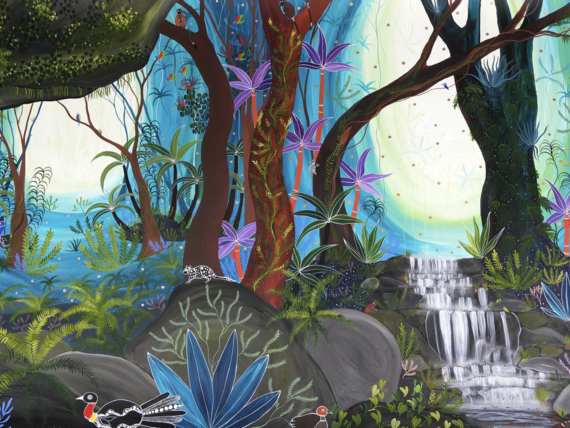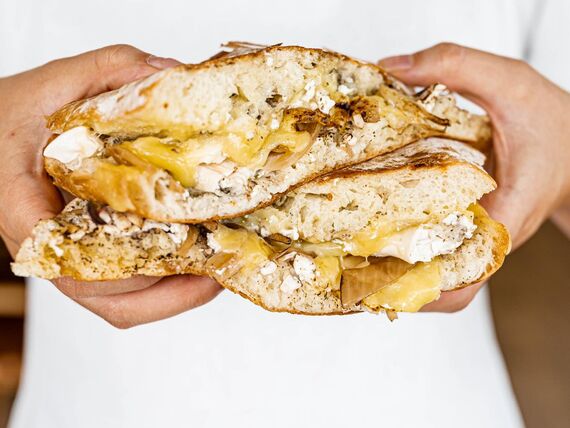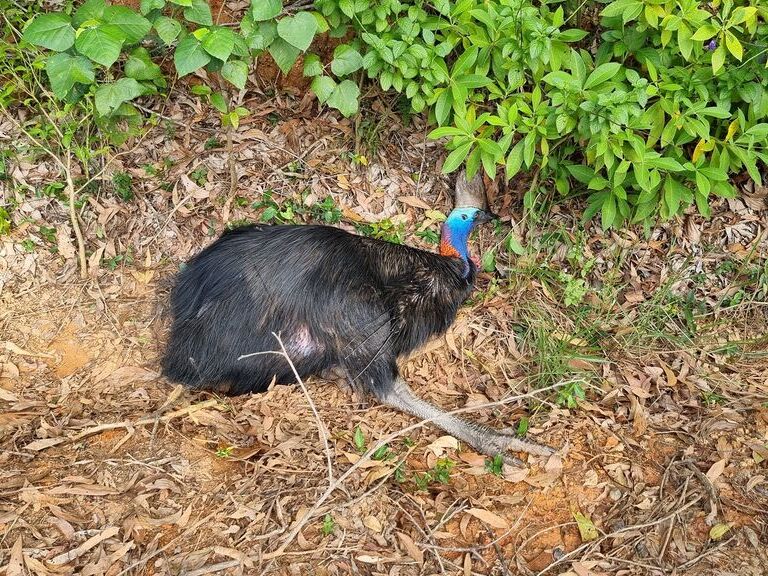
##MP##
Content warning: distressing images
Locals and tourists are being urged to stop feeding cassowaries after an adult bird was struck by a car today near Mission Beach.
The animal was found south of Garners Beach Road on Bingil Bay Road around 7am this morning.
Local animal rescue volunteers believe the cassowary had recently been fed by people – an offence carrying a $5,222 fine.
Mission Beach Wildcare’s Steve McGuiness said it’s likely the cassowary approached the road seeking a feed.
##BA##
“DES and Tropical Vets attended and a decision was made to euthanise after examination, as its injuries were severe,” he said.
“Apparently it had plenty of bananas just prior, and many passers-by stated it was ‘their’ friendly cassowary.
“I would suggest to those in the community that think they are doing the right thing by protecting cassowaries to think again.
##PQ##
Mr McGuiness said that most cassowaries that are struck by a car are put down by wildlife authorities, due to the difficulty of rehabilitating the birds – even with an injury as little as a broken leg.
Less than a month ago, the wildlife rescue group was called to a struck bird on Tully Mission Beach Road.
The cassowary suffered life-threatening injuries including a severe break to the leg and was consequently down by environment authorities.
“The traffic was noticeably busier than we have seen recently and being a steady flow there is no evidence excess speed was a factor,” Mr McGuiness said.
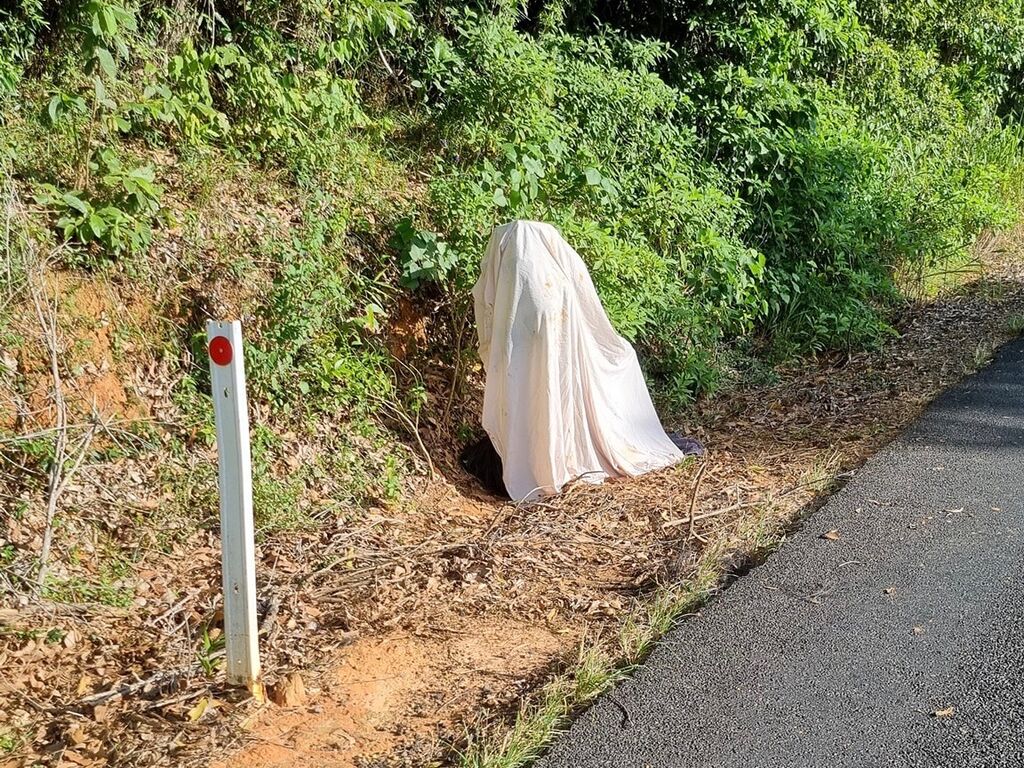
“If the person involved [in both incidents] would like to contact us in confidence or ring DES directly to gather any information that can contribute to saving lives of our cassowaries and wildlife it would be welcomed.”
Department of Environment and Science (DES) data indicates 45 cassowaries were hit by cars near Kuranda and Mission Beach over the two years to April last year.
Dr Graham Lauridsen from Tropical Vets said six necropsies of deceased cassowaries undertaken last year proved that humans were having an impact on local cassowary populations.
##PQ2##
“Those six deceased cassowaries had clearly been encouraged to come into urban areas when they have no reason to be there, and then they’d been fed by locals,” Dr Lauridsen said.
“Local landcare groups, wildlife organisations and DES are putting a lot of effort into cassowary conservation and it’s being undone by locals who think the cassowaries need feeding.”
Director of the DES Northern Wildlife Operations, Lindsay Delzoppo, said feeding cassowaries in urban areas can habituate the birds and cause them to approach people in the hope of receiving food.
“This places cassowaries in danger by leaving them vulnerable to vehicle strikes and dog attacks, and they can also behave in an unpredictable way,” Mr Delzoppo said.
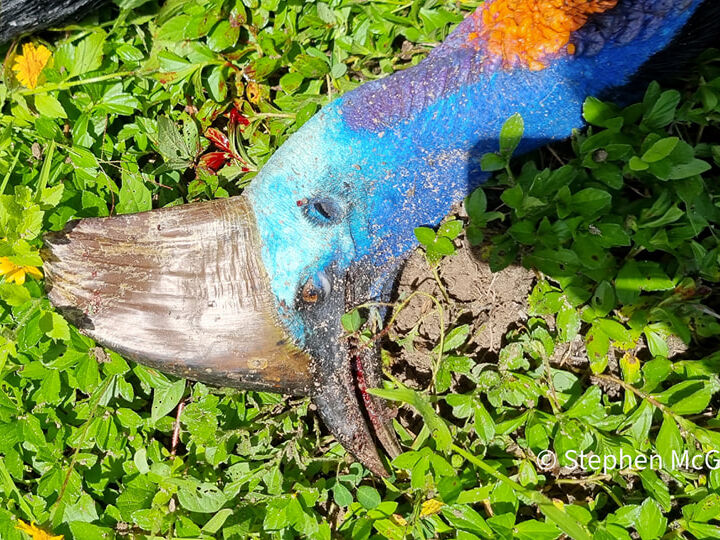
“Several years ago, a large cassowary began kicking at the doors and windows of a man’s house at Mission Beach, and knocked him down an embankment.
“The man had just moved into the house and it was clear that the previous inhabitant had been feeding the bird, which was captured by wildlife officers and transferred to a national park.
“The species is classified as endangered in the Wet Tropics and we’re asking people to leave cassowaries alone and let them live their natural lives in the rainforest, as they have done for millions of years.”
Cassowary sightings in urban areas should be reported to DES by calling 1300 130 372.
Main points
- 45 cassowaries have been injured or killed by cars around the Far North over two years
- Wildlife rescue groups are concerned birds are becoming habituated to people and urban areas by being fed
- At least two cassowaries have been struck by cars around Mission Beach in the past month


